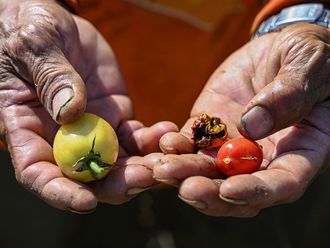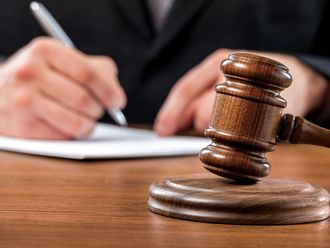Manila: Police will soon be taking their battle against criminals to social networking sites — a relatively new frontier in the increasingly sophisticated field of law enforcement.
In recent years, Philippines-based criminals have been using social networking sites to carry out crimes such as swindling and prostitution. They are perpetually engaged in trying to be “one up” on law enforcers by employing increasingly sophisticated tricks.
According to Senator Ralph Recto, police could wage its war against criminality by taking the fight to the criminal’s realm — social networking sites such as Facebook.
The senator pushed law enforcement agencies to come up with a Facebook page as well as a presence in micro blogging sites Twitter and Instagram, and feature the country’s thousands of wanted persons to forewarn the public and seek their help in bringing these fugitives to justice.
“Uploading the pictures and profiles of these wanted criminals is easy and free. It is not that complicated,” Recto said.
According to Recto, agencies like the Philippine National Police, the National Bureau of Investigation, and the Philippine Drug Enforcement Agency should start tapping social media as a powerful tool in informing the people of the identities of fugitives from the law.
Recto, a lawyer, added that even the Philippine Overseas Employment Administration (POEA) can come up with a similar scheme on its Facebook page and Twitter and Instagram accounts that contain the names, faces, and last known addresses of illegal recruiters who have been issued warrants of arrest.
“We can also post in YouTube the footage of their capers which have been caught on cam,” Recto said.
The scheme to employ social networking sites in the fight against crime could effectively make full use of the Philippines’ fondness for social networking through the internet. Studies have found that the country ranks eighth in the number of social networking site users.
“Two years ago, there were already 27,720,300 Facebook users. On this site alone, you already have a big audience ready to receive and share the information you want disseminated,” he said.
“Social media can aid in the arrest of a serial child rapist, for example. If properly tapped. It can make the arm of the law longer,” Recto added.
In a related development, an accused rapist in Central Philippines was tracked down and apprehended by authorities after he posted a “selfie” on Facebook.
Nino Cueva was arrested by Mandaue City police after he posted a photo of himself with the Shrine of Our Lady of the Miraculous Medal in the village of Lapaz, Bogo town, as the background, the daily Philippine Star reported.
The Cueva had allegedly raped a high school student in 2012.
Earlier, a gang of five robbers was arrested in a resort in Olongapo City, northwast of Manila in Zambales province, two weeks ago after they posted pictures on Facebook while on vacation following a heist in Quezon City.











